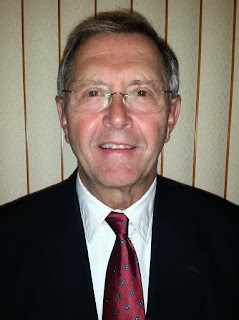by the WELS2 Project Team (Tina Vo, Cory Forbes, Nick Brozovic, and Jane Griffin)
Around the globe, humans face an array of contemporary challenges associated with food, energy, and water systems. To prepare future generations of problem-solvers equipped to address these challenges, education must go beyond merely disseminating information. The Environmental Protection Agency (EPA), for example, has identified important components of environmental education that include an emphasis on awareness, knowledge and understanding, attitudes, skills, and participation in environmental challenges. When focused on these challenging issues of today, science literacy can involve:
- Explaining, describing, predicting natural phenomena
- Considering multiple viewpoints and different stakeholders invested in the system
- Identifying issues, biases, or limitations within research
- Accounting for various mechanisms and their effects within a system
- Evaluating the validity of data collection methods
- Creating and evaluating arguments around environmental topics
- And a myriad of other science-oriented tasks and practices
This knowledge and the associated skills define scientific literacy about interactions between humans and the environment. Supporting audiences to become more scientifically literate requires cultivating a culture and perspective that values critical thinking, problem-solving, and informed decision-making.

For example, decisions about water resources are complicated and involve human and environmental concerns. A scientifically-literate person is one who’s prepared to ask questions such as: Who/what benefits from resource allocation? Who/what might be hurt by these decisions? What evidence do we have to support these claims and how did we obtain that evidence? How will this impact the water availability for others? Have we considered the natural and economic factors will be influenced? And these are only a few aspects to consider. While issues like this are complicated, frameworks like the ones developed at the University of Nebraska help untangle them by providing guidance such as where to start, who to ask for help, and how to educate ourselves.
Another way these key components of environmental education are highlighted and science literacy is supported is through the adaptation of state and national standards that acknowledge the role of ‘science practice’ as a way of doing and knowing science and requesting these practices be taught in the classroom. Teachers can support students through meaningful and directed educational experiences by providing opportunities to develop knowledge about food, energy, and water issues (e.g. water resource management) and scientific practices (e.g. scientific modeling).
One aspect of environmental education that can prove challenging for learners of all ages centers on the complexity of hydrological phenomena. Complicated environmental issues develop around balancing humans’ use of groundwater against depletion and recharge rates. Supporting and fostering critical thinkers who can find solutions for these multifaceted issues will take dedicated educators who are well versed in science practices and environmental education.

The WELS2 project (Water Education Leaders for Secondary Science) is committed to providing high school and middle school teachers in Nebraska with the training, supplemental educational materials, and experiences around hydrological phenomena, to support their food, energy, and water education efforts in the classroom. Through this professional development program, teachers can earn up to 9 hours of graduate course credit through the College of Agricultural Sciences and Natural Resources at the University of Nebraska-Lincoln, as well as a stipend, to support their ongoing professional learning. WELS2 introduces teachers to various resources including computer-based water modeling tools, pedagogical strategies for encouraging students' model-based reasoning about water, and strategies for grounding these experiences in real-world, issues-based contexts. Teachers will learn to use these resources to develop their professional skill sets, as well as how to use them in their classrooms to enhance their students’ learning about water systems. Participating teachers use part of this experience to collaborate with educational specialists and scientists and tailor resources suited to their students’ needs. This collaboration is an important facet of the project which highlights the expertise of the participating teachers to assess and develop materials specifically for their use. If you are interested in joining this program or would like to learn more, please inquire here.
Environmental education is an important part of supporting and developing science literacy in audiences of all ages. Educators who wish to help students develop these tools for critical thinking, reasoning, and problem-solving need to be supported and provided opportunities to do so. By partnering with institutions and organizations like the UNL Science Literacy Program, Daugherty Water for Food Global Institute, and The Groundwater Foundation, educators can leverage additional tools and resources delving deeper into environmental challenges and supporting their students in building critical thinking, problem-solving, and decision-making skills.
The WELS2 Project Team includes Cory Forbes, Associate Professor of Science Education, Institute of Agriculture and Natural Resources Science Literacy at the University of Nebraska-Lincoln, cory.forbes@unl.edu; Tina Vo, PhD Candidate, University of Nebraska-Lincoln, ms.tinavo@gmail.com; Nick Brozovic, Director of Policy, Robert B. Daugherty Water for Food Global Institute, nbrozovic2@unl.edu; and Jane Griffin, President, The Groundwater Foundation, jgriffin@groundwater.org.















